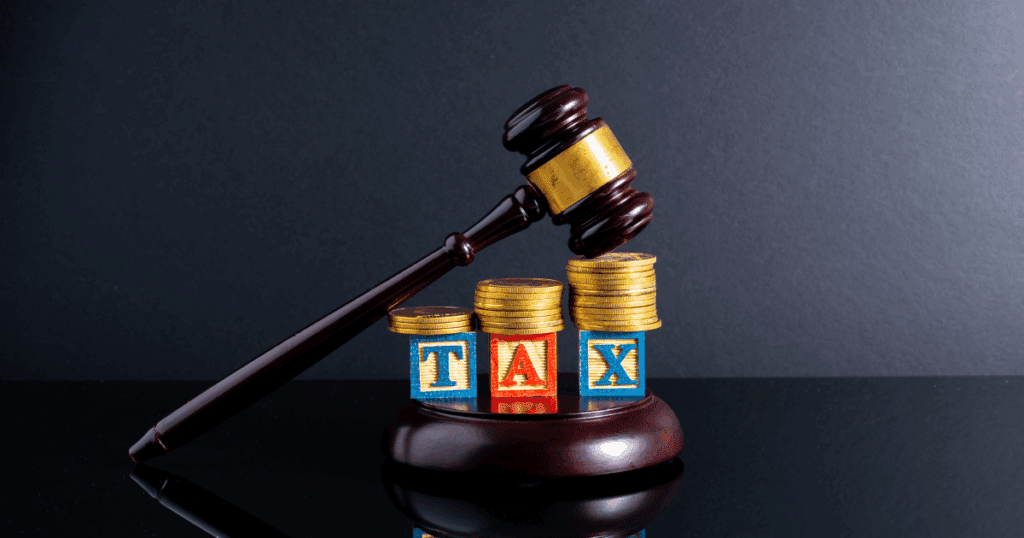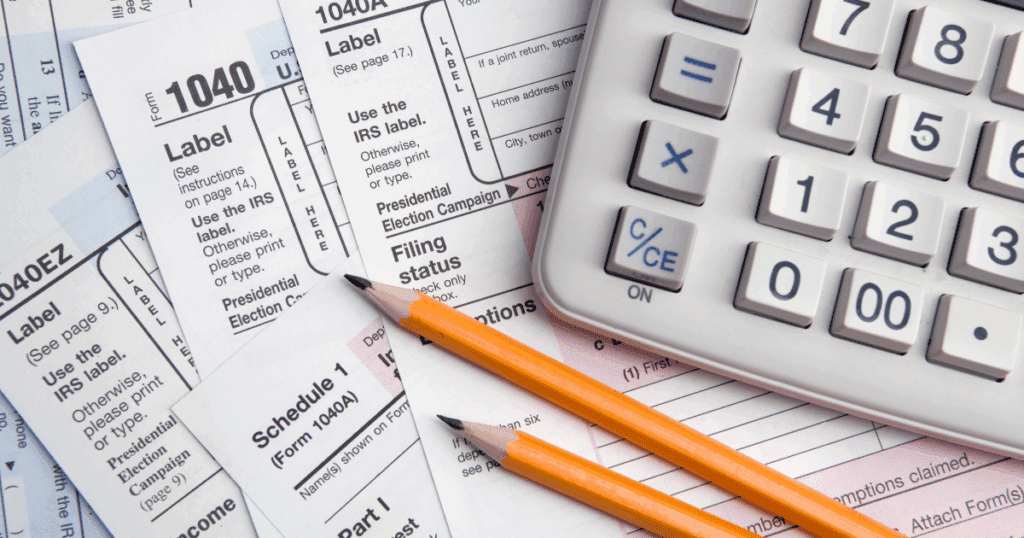
When it comes to tax filing for beginners, it is essential to understand the basics of tax filing.
Have you ever wondered why so many first-time taxpayers feel overwhelmed when it comes to filing their taxes? You’re not alone. Tax filing can seem like a complex maze with winding turns and dead ends, especially for those who are new to the process. Fear not, as this guide aims to demystify the essentials of filing taxes for the first time, offering clarity and direction. Whether you’re a recent university graduate, someone who recently entered the workforce, or simply someone who has just never had to file before, understanding the basics is your first step toward navigating tax season with confidence.
Understanding Tax Forms
Before diving into the filing process, it’s essential to become familiar with the different tax forms you will encounter. At the heart of the tax filing process is the Form 1040. This form is used by U.S. taxpayers to file an annual income tax return. Other variants exist, like the 1040EZ and 1040A, which are simpler but have specific eligibility criteria. For most first-timers, the 1040 or its simplified versions will be your go-to.
To better understand, consider this table highlighting the major forms and their purposes:
| Form Name | Purpose | Who Should Use It? |
|---|---|---|
| Form 1040 | Standard individual income tax return | All taxpayers |
| Form 1040EZ | Simplified return for eligible taxpayers | Single and joint filers with no dependents |
| Form 1040A | Shorter form than 1040, with some limitations | Taxpayers with deductions specified on the form |
| Form W-2 | Reports wages and taxes withheld | All employed taxpayers |
| Form 1099 | Reports income from sources other than wages | Freelancers and contractors |
Being mindful of these forms and their uses can significantly streamline the filing process and reduce stress.
Collecting Essential Documents
Once you’re acquainted with the forms, your next task is to gather the necessary documents. This includes all records of income, such as W-2 forms from your employers or 1099 forms for any freelance work. Additionally, you should have records of any deductions or credits you plan to claim. Keeping organized and comprehensive records can alleviate the potential headache of backtracking during the tax filing process.
It’s not uncommon for first-time filers to feel a little lost when it comes to documentation. Many taxpayers are surprised to learn just how varied and extensive these records can be. For example, if you’re paying student loans, the interest paid can be deductible, and you’ll need Form 1098-E to report this. Similarly, charitable contributions and certain educational expenses also come into play during this phase.
The golden rule? Gather your documents throughout the year rather than waiting until tax season approaches. This proactive approach can save you from a scramble at the last minute and ensures that you don’t miss any critical opportunities for deductions and credits.
Choosing the Right Filing Method

“An investment in knowledge pays the best interest.” This timeless quote by Benjamin Franklin perfectly encapsulates the value of understanding your filing options. It’s crucial to decide whether to file taxes manually or use software. Manual filing involves filling out IRS forms by hand and mailing them in. This method can be cumbersome and is nothing short of a tax antiquity given today’s technological toolkit.
Alternatively, tax software options simplify the process, providing step-by-step guidance and automatic calculations. Turbotax, H&R Block, and TaxAct are some of the popular platforms that first-time filers find useful. For those eligible, the IRS Free File offers free software for federal tax filing.
When using tax software, it’s easier to avoid common errors and it often includes a feature that checks for potential audit risks. Additionally, these programs often offer both federal and state filing options, making them a one-stop shop for tax filing needs.
Understanding Deductions and Credits
The tax process becomes more favorable once you grasp deductions and credits—these can significantly reduce the amount you owe or even increase your refund. Deductions lower your taxable income, meaning you’re taxed on a smaller amount. Common deductions include student loan interest, mortgage interest, and charitable contributions.
On the other hand, credits directly reduce the tax you owe. Popular credits include the Earned Income Tax Credit (EITC) and the Child Tax Credit (CTC). For many first-time filers, understanding these deductions and credits can be daunting yet rewarding.
1- It’s crucial to determine your eligibility for any tax benefits.
2- Keep track of related documents to substantiate your claims.
3- Undue optimism or ignorance could result in penalties, so be meticulous.
4- Lastly, even if you don’t owe taxes, filing could get you a refund through credits.
These points illustrate the importance of getting a handle on tax deductions and credits, which ultimately optimizes your financial outcome.
Filing Your Taxes

With your documents ready and deductions noted, it’s time to embark on the filing journey. This process is straightforward if you’re using tax software, as it will guide you through entering your income details, deductions, and credits. Double-check each entry, as tiny mistakes can ripple into larger issues.
Once you’ve completed the initial entry, most software offers a ‘review’ phase. At this point, scrutinizing the summary of your return is vital. Look for discrepancies or potential issues flagged by the software. This proactive step can save you from future audits and adjustments.
After the review, it’s time to submit your return electronically or print it for postal mailing. E-filing is quicker, more efficient, and offers a faster refund process. Always keep a copy of your tax returns for your records, as this will be beneficial for future claims and when filing subsequent returns.
Record Keeping and Future Preparation
Efficient record keeping doesn’t stop once you file your taxes. Storing copies of your tax returns and associated documents is crucial, as they serve as a reference for future filings. This habit also prepares you for any audits or questions that might arise later.
In preparing for subsequent tax years, developing a system to file receipts, forms, and relevant documents can make future filings less daunting. Consider creating a digital folder or using a financial tracking app to maintain an organized record of your finances. This foresight will smooth the path for your next tax season.
Considering Professional Help
First-time tax filers may find themselves overwhelmed, even with the adequate use of software. In such cases, considering professional help might be a worthwhile investment. Tax professionals can provide personalized advice and ensure you’re maximizing deductions and credits.
When seeking professional help, it’s essential to find a reputable, credentialed expert. CPAs and Enrolled Agents are well-equipped to handle complex tax situations and can offer guidance specific to your situation. While this may entail a cost, the peace of mind and potential savings can be well worth it.
FAQ – Common Questions
What is the penalty for not filing taxes?
Failing to file taxes can result in a penalty of 5% of the unpaid tax for each month the return is late, up to a maximum of 25%.
Is it mandatory to file taxes if you have no income?
If you have no income, you may not be required to file; however, doing so could be beneficial if eligible for refundable tax credits.
What are the easiest deductions for first-time filers?
Common deductions include student loan interest, medical expenses, and education-related costs. Ensure you keep all relevant documentation.
How long should you keep tax records?
It’s recommended to keep tax records for at least three years, but some situations may require keeping them for a longer period.
Are tax refunds taxable?
No, tax refunds are not considered taxable income. They are simply the return of overpaid taxes from the previous year.
Conclusion
Filing your taxes for the first time doesn’t have to be an overwhelming ordeal. With the right preparation, a clear understanding of the necessary forms and documentation, and a focus on deductions and credits, you can navigate tax season with confidence. Whether choosing to handle it yourself or enlisting the help of a professional, remember that being informed and organized is key. With this guidance, you’re well-equipped to take on this new financial responsibility and pave the way for smoother tax seasons in the future.
- Read more about how to create a personal budget and reduce your taxes: https://mybeemoney.com/como-criar-um-orcamento-pessoal/












